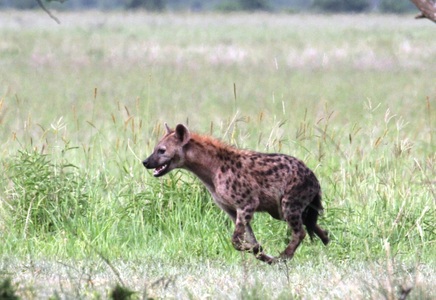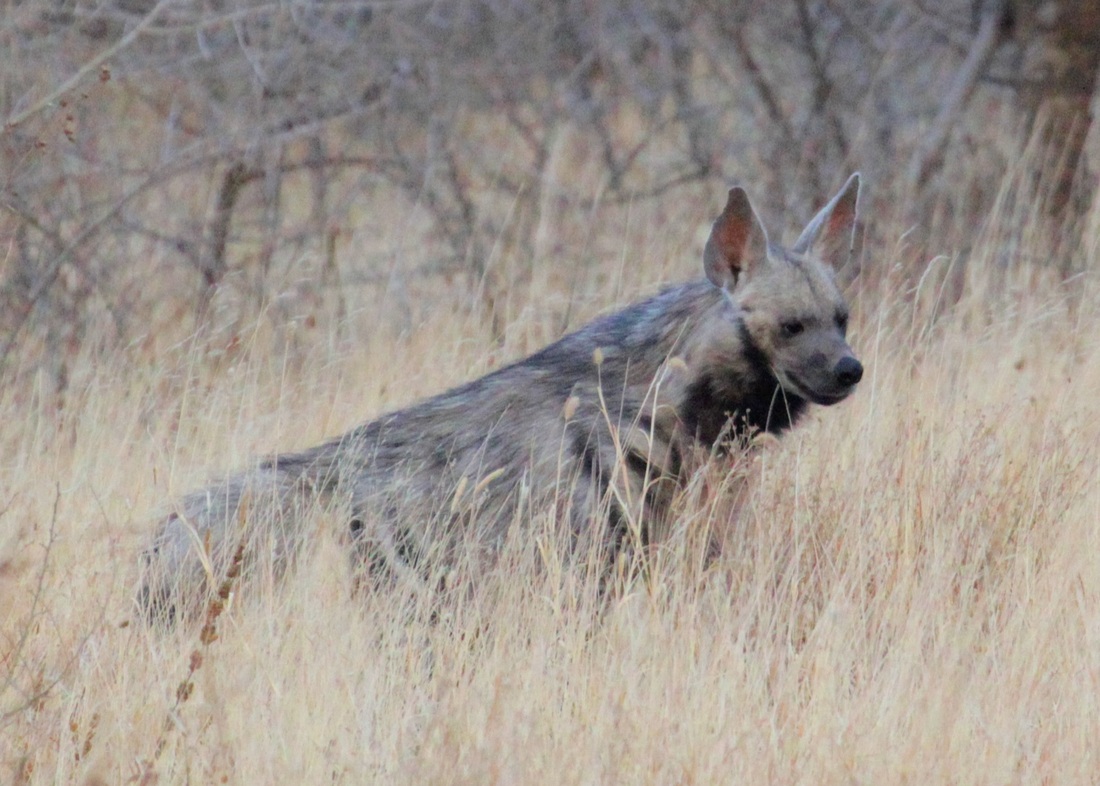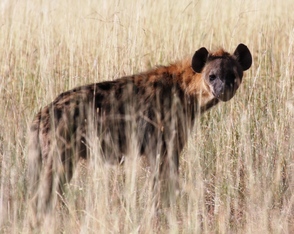|
The distinctive hyena is one of the most interesting and important carnivores in the African savanna. While more closely related to the viverrids (mongooses and civets), hyenas are behaviorally more similar to canines in that they do not climb trees and they catch prey with their teeth rather than claws. Speaking of teeth, hyenas have exceptionally powerful jaws and teeth which, combined with a digestive system capable of dissolving bones and teeth within hours, allow them to utilize remains of large vertebrates more completely than any other carnivore. The high proportion of bones in the diet of spotted hyenas in particular may explain why females can nurse their young for more than a year: the desiccated corpses of wildebeests that died months earlier are eaten and provide protein, fat, calcium, phosphorus, and other minerals that sustain milk production. Hyenas cannot digest hair, however, so they solve the problem by disgorging hairballs (like owls) along with pieces of hooves, horns, and grass. There are only four species in the family Hyaenidae: striped, brown, and spotted hyenas and the aardwolf. Spotted hyenas hunt cooperatively and kill medium to large-sized ungulates, whereas brown and striped hyenas are solitary foragers that primarily scavenge for food and aardwolves specialize in feeding on termites. All but the brown hyena occur in our study area. Because hyenas and aardwolves are nocturnal we rarely see these magnificent creatures, but we often hear spotted hyenas whooping (calling to each other) at night. One interesting note is that spotted hyena females and males have equal concentrations of testosterone, which may have led to the presence of a male phallus in females.
0 Comments
Your comment will be posted after it is approved.
Leave a Reply. |
Science News and Updates From the Field from Wild Nature Institute.
All Photos on This Blog are Available as Frame-worthy Prints to Thank Our Generous Donors.
Email Us for Details of this Offer. Archives
July 2024
|
|
Mailing Address:
Wild Nature Institute PO Box 44 Weaverville, NC 28787 Phone: +1 415 763 0348 Email: [email protected] |
|




 RSS Feed
RSS Feed
